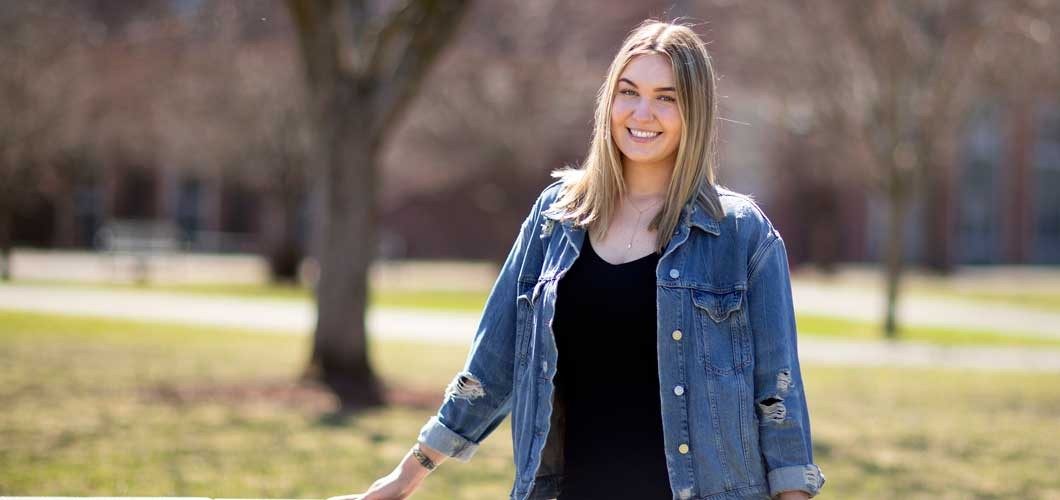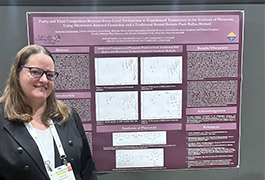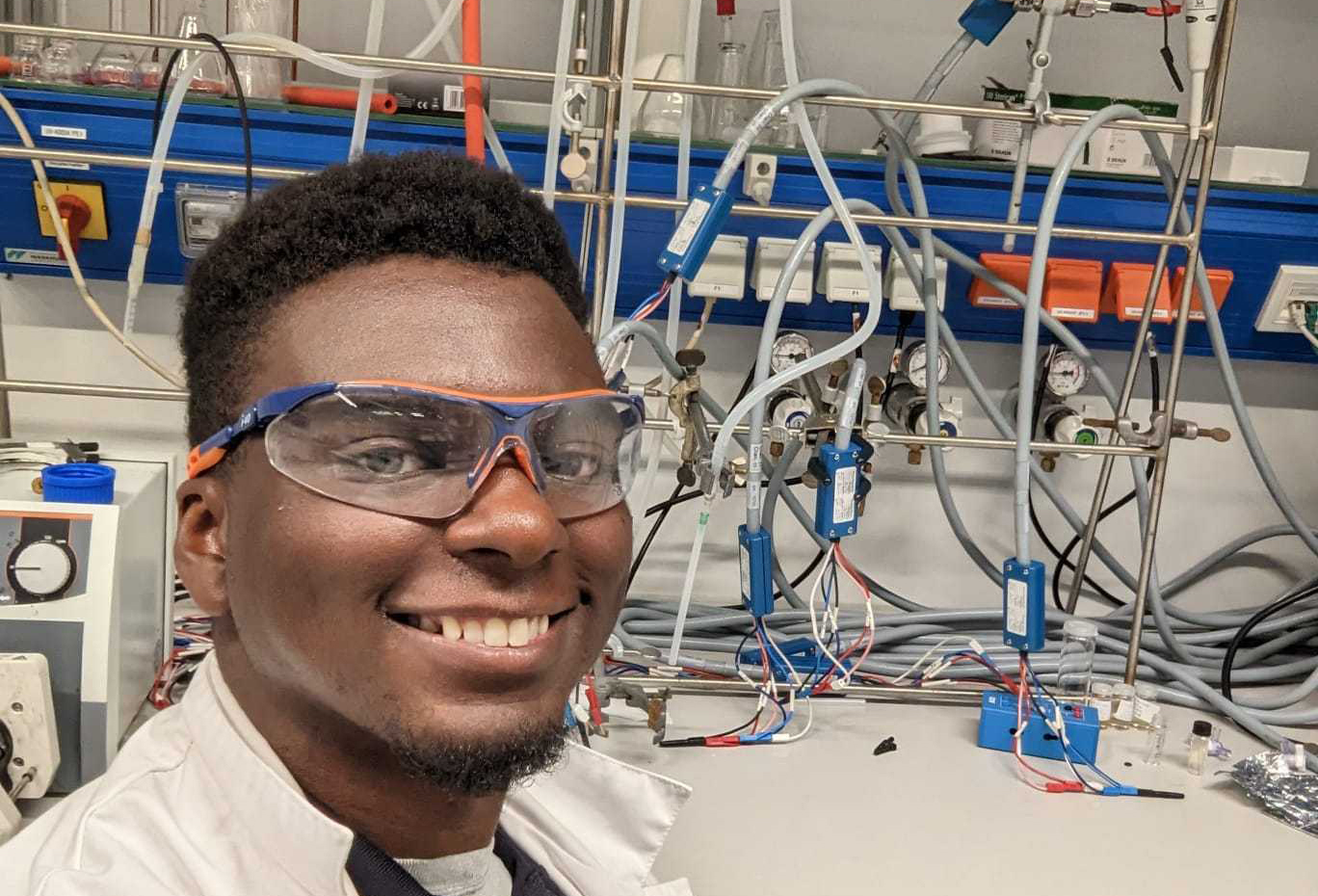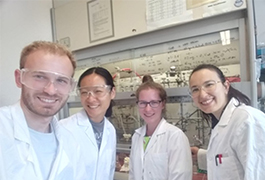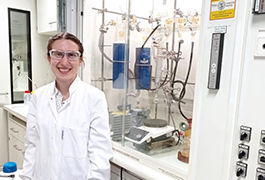SUNY Student Aliaksandra Reutovich Wins Goldwater Prize for Biochemistry Research
The chemical reactions that underlie life are infinitely fascinating to Aliaksandra Reutovich, a senior at State University of New York Potsdam. “Sometimes, I just lay [in bed] at night and think about everything that’s going on in my body right now,” says Reutovich, who is a double major in biochemistry and biology.
It may have cost her some sleep, but her curiosity also landed her a big reward earlier this year—the Barry M. Goldwater Scholarship, an award established in memory of the late Senator Barry Goldwater of Arizona, who served five terms in Congress. In March, Reutovich became the first SUNY Potsdam student to receive the prestigious award. The scholarship recognizes engineering, science, and math majors with outstanding research and academic performance.
Reutovich stood out as a biochemistry student at SUNY and for her ability to come up with and investigate her own research questions, helping the laboratory make new discoveries, says Dr. Fadi Bou-Abdallah, a professor of chemistry at SUNY Potsdam, who nominated her for the award. “She’s intelligent, she’s hardworking, she’s very passionate about what she’s doing,” says Bou-Abdallah. “So she’s actually everything a faculty or research advisor would want.”
Reutovich was one of 408 students selected from a pool of more than 5,000 applicants from across the country. In her application for the award, which requires research experience to qualify, she highlighted her research on the structure of mutant proteins that can cause disease.
Reutovich’s interest in health started early. Born in Belarus and raised in New York, she always had her head in a book as a child. She recalls frequently asking her grandmother, an engineer who also had a strong interest in health, numerous questions about the functions of the human body. She later worked at a medical office while attending high school. This experience led her to select biology as her major at SUNY Potsdam.
But, she says, she didn’t feel a “spark” in her freshman biology classes. Toward the end of the school year, she applied to work in Bou-Abdallah’s laboratory. That summer, she researched how small mutations in a protein called ferritin contribute to neuroferritinopathy, a brain disease. “It felt like I was a little kid again. It was just pure curiosity and fascination,” she says. “That’s when I decided to also major in biochemistry.”
Since joining the laboratory in 2019, she has coauthored three peer-reviewed research papers and has two more underway. She has continued to work on characterizing the structure of ferritin and how it can affect iron accumulation in the brain, which in turn can lead to several neurodegenerative diseases. “It opened my eyes to how our understanding of diseases can truly start at the lab bench,” she says. “It kind of made everything fall into place where I realized that I can truly make a difference, be on the forefront of discovery, and bridge the gaps between our understanding of diseases and clinical practice.”
Although the majority of her life right now is consumed by coursework and research, Reutovich says she enjoys sometimes putting aside textbooks in favor of reading history and Russian literature. She also likes cooking and gardening in her spare time.
After she graduates in May next year, she plans to take a year off before attending graduate school. She hopes to work in a laboratory or hospital while preparing her applications for combined MD/PhD programs. Such programs total 8 to 10 years: med school classes, followed by working on a dissertation, and then clinical rotations. All that hard work is worth it for Reutovich. “It opens the door for conducting research and translating that research into clinical practice,” she says, envisioning a future career split between further study of biochemistry alongside part time work as a doctor. “It’s very rewarding.”

